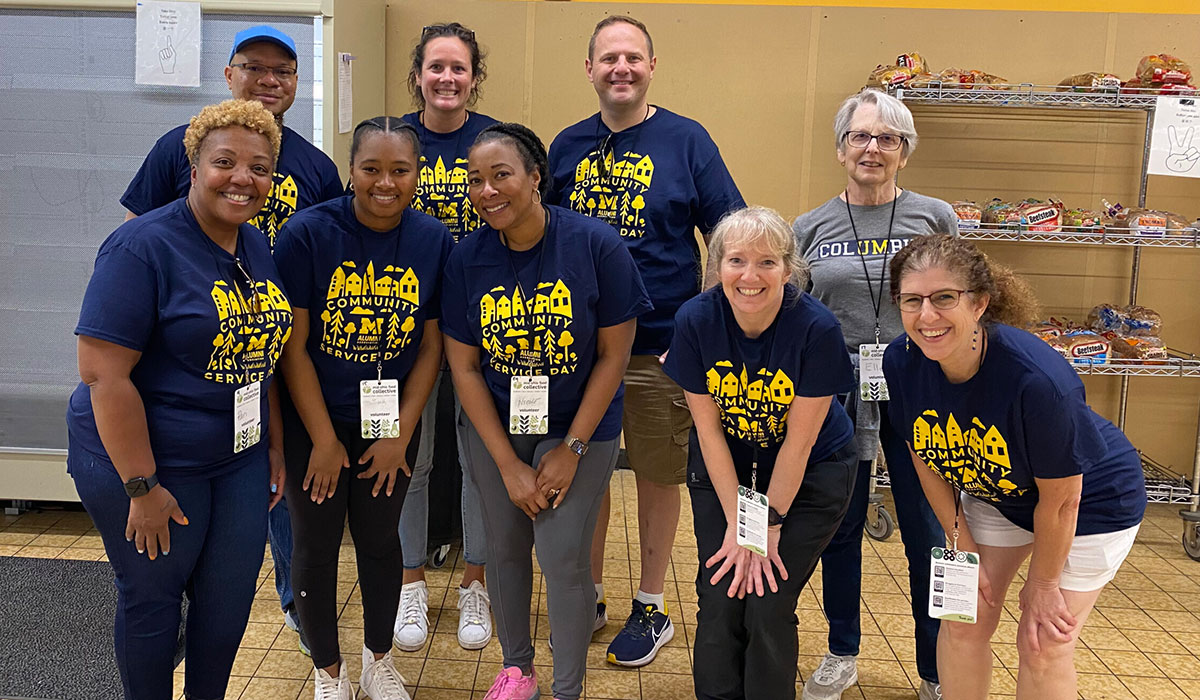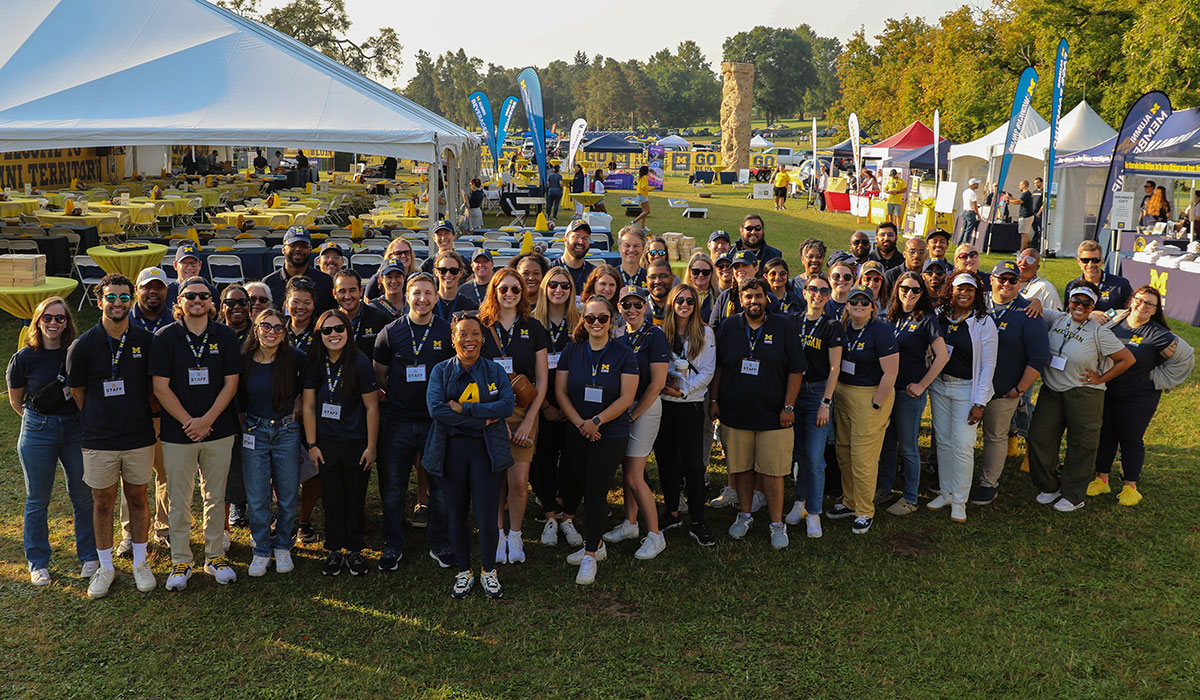Mission
The mission of the Alumni Association of the University of Michigan is to enrich the University of Michigan’s impact by serving as an independent gateway for alums of all identities, backgrounds, and experiences — across the globe and in our neighborhoods — in order to create and deepen belonging to the Michigan family, the Leaders and Best.
The Alumni Association supports the University of Michigan’s mission and values.
Alumni and students of all backgrounds can get involved with the Alumni Association and build a community of belonging.
Join Michigan Alumni in Your Communities
Domestic and international alumni clubs provide opportunities for alumni to come together to connect and deepen their belonging to the Michigan alumni family.
Affinity groups connect alumni to each other and the University by fostering pride, honoring legacy, and celebrating heritage and identities that strengthen and enrich the Michigan alumni family.

Student Support
The Alumni Association supports students in a variety of ways.
Alumni help students from all walks of life make their dreams of a University of Michigan education a reality with club scholarships.

Our Team
Our staff strives to uphold our mission and to create a community of belonging.

Core Values
The Alumni Association’s Core Values make up a mindset. They are effortlessly on display in everything we do, at every level of the organization, during every minute of our day. These three principles guide us in the way we conduct both ourselves and our organization. We hire around them, we rally around them. They are us.
All In
To carry the mission of the organization with you, execute your work with the mission in mind, and do it with everything you’ve got.
Serving Heart
To understand the needs of alumni, students, colleagues, and the organization, and selflessly seek to meet those needs in the best possible way.
Solution Seeker
To be one who grasps the situation, seeks to understand others’ points of view, and readily finds answers that benefit the most involved.
